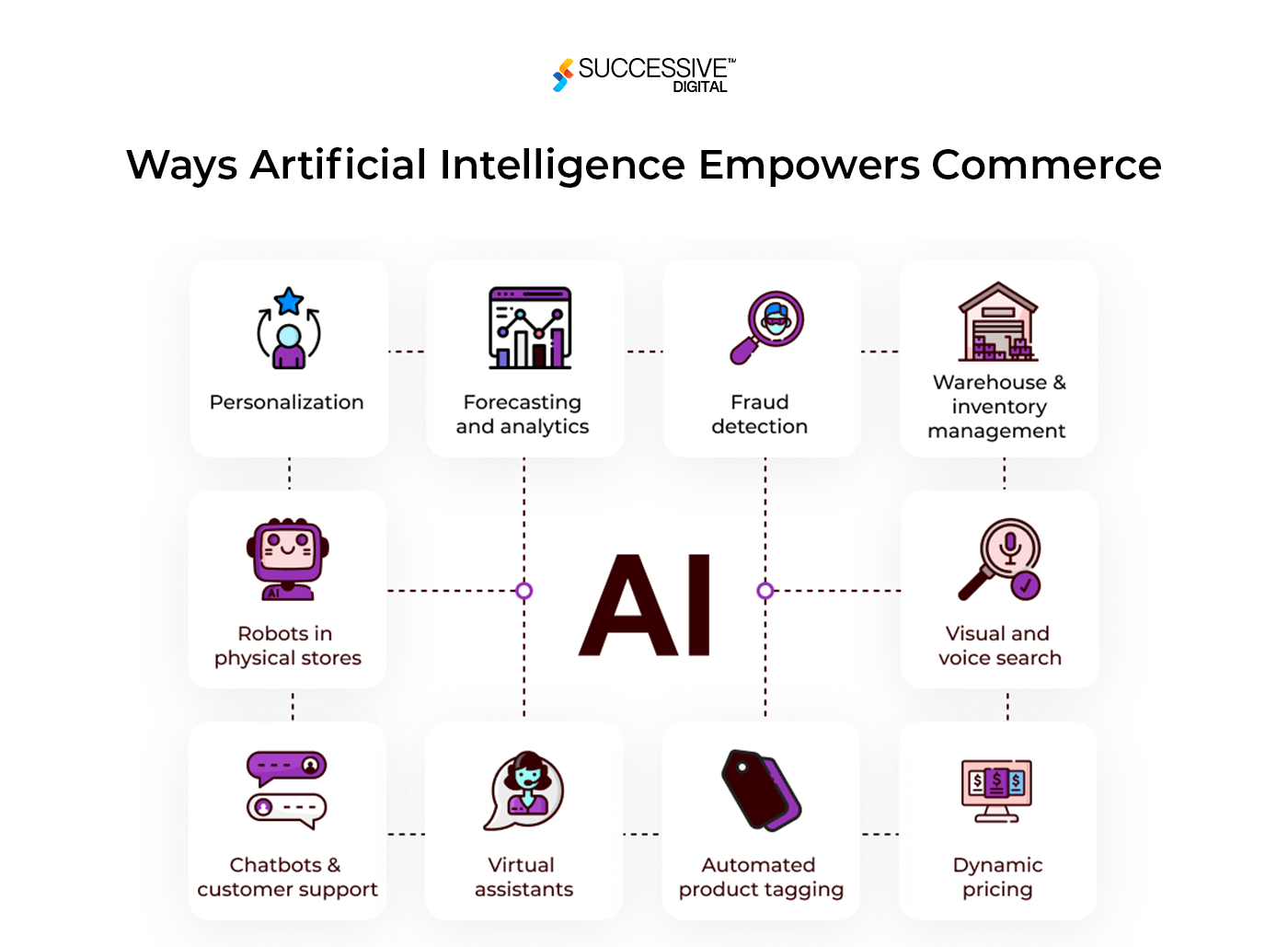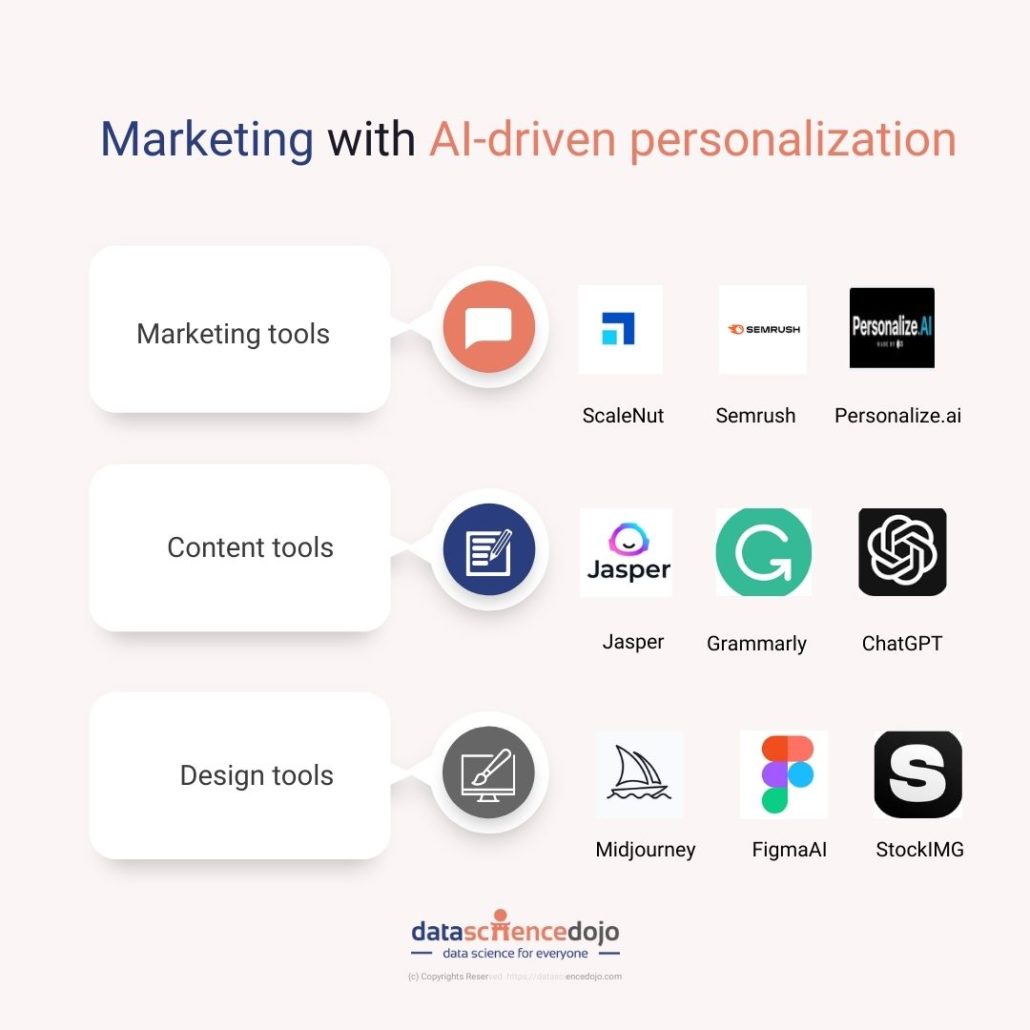AI Tools for eCommerce Personalization and Automation: Enhancing Customer Experience and Efficiency
Exploring the realm of AI tools for eCommerce personalization and automation opens up a world of possibilities for online retailers. By leveraging cutting-edge technology, businesses can create tailored shopping experiences and streamline their operations like never before. Let's delve into the innovative solutions that AI offers in the realm of eCommerce.
Overview of AI tools for eCommerce personalization and automation
AI tools play a crucial role in revolutionizing the eCommerce landscape by providing advanced solutions for personalization and automation. These tools leverage artificial intelligence algorithms to analyze vast amounts of data and deliver tailored experiences to online shoppers, ultimately enhancing customer engagement and driving sales.
Enhancing Personalization and Automation
AI tools in eCommerce enable businesses to create personalized recommendations, product suggestions, and targeted marketing campaigns based on individual customer preferences and behavior. By utilizing machine learning and predictive analytics, these tools can segment customers, predict future buying patterns, and automate interactions to deliver a seamless and customized shopping experience.
- One popular AI tool for eCommerce personalization is Dynamic Yield, which uses AI-powered algorithms to deliver real-time personalization across web, mobile, and email channels.
- Another example is Emarsys, an AI-driven marketing platform that helps retailers automate customer interactions and personalize campaigns to drive conversions.
- Retailers also leverage chatbots powered by AI, such as Chatfuel or ManyChat, to provide instant customer support, offer product recommendations, and streamline the shopping process.
Benefits of Integrating AI Tools
Integrating AI tools in eCommerce platforms offers several advantages, including improved customer engagement, increased conversion rates, enhanced user experience, and optimized marketing efforts. By leveraging AI to analyze data in real-time and make intelligent decisions, businesses can create a competitive edge, boost sales, and foster long-term customer loyalty.
Personalization strategies in eCommerce using AI tools

Personalizing the shopping experience is crucial for eCommerce success, and AI tools play a significant role in achieving this goal.
Different Methods of Personalizing the Shopping Experience with AI Tools
- AI-powered product recommendations based on customer browsing history and preferences.
- Personalized email campaigns triggered by customer behavior and purchase history.
- Dynamic website content that adapts to individual customer preferences in real-time.
How AI Tools Analyze Customer Data to Tailor Product Recommendations
AI tools use machine learning algorithms to analyze vast amounts of customer data, including past purchases, browsing behavior, demographic information, and social media interactions. This data is then used to create personalized product recommendations that are more likely to resonate with each customer.
The Role of AI in Creating Personalized Marketing Campaigns
- AI tools can segment customers based on their behavior and preferences, allowing for targeted marketing campaigns.
- Personalized marketing messages can be delivered at the right time and through the right channels to maximize engagement.
- AI can automate the process of A/B testing to optimize marketing campaigns for different customer segments.
Examples of Successful eCommerce Personalization Strategies Powered by AI
- Amazon's recommendation engine suggests products based on past purchases and browsing history, leading to increased sales and customer satisfaction.
- Netflix uses AI to personalize movie and TV show recommendations for each user, keeping them engaged and subscribed to the platform.
- Sephora's Beauty Insider program leverages AI to offer personalized product recommendations and exclusive promotions, enhancing the overall shopping experience for customers.
Automation techniques in eCommerce leveraging AI tools

AI tools have revolutionized the eCommerce industry by introducing automation capabilities that streamline operations and enhance efficiency. By leveraging AI technology, eCommerce businesses can automate various tasks such as order processing, inventory management, and customer support, leading to significant improvements in overall performance.
Order Processing Automation
AI tools enable eCommerce businesses to automate the entire order processing workflow, from order placement to fulfillment. These tools can automatically categorize and prioritize orders, generate invoices, and update order status in real-time. By eliminating manual intervention, AI-driven automation ensures faster order processing and improved accuracy.
Inventory Management Automation
AI tools play a crucial role in automating inventory management processes by analyzing historical sales data, demand forecasting, and optimizing stock levels. These tools can automatically reorder stock when inventory levels run low, track product movement, and prevent stockouts. By automating inventory management, eCommerce businesses can minimize overstocking, reduce storage costs, and improve overall inventory accuracy.
Customer Support Automation
AI-powered chatbots and virtual assistants have transformed customer support in eCommerce by providing instant responses to customer queries, resolving issues, and offering personalized recommendations. These AI tools can handle a large volume of customer inquiries simultaneously, 24/7, without human intervention.
By automating customer support, eCommerce businesses can enhance customer satisfaction, reduce response times, and increase customer retention rates.
Impact of AI-driven Automation
The adoption of AI-driven automation in eCommerce has led to significant improvements in operational efficiency, cost savings, and customer satisfaction. By automating repetitive and time-consuming tasks, businesses can focus on strategic decision-making and innovation, leading to increased productivity and growth.
AI-driven automation also helps in reducing errors, minimizing manual labor, and optimizing resource utilization, ultimately streamlining eCommerce workflows.
Real-world Examples
- Amazon utilizes AI algorithms to automate product recommendations based on customer browsing and purchase history, leading to increased sales and customer engagement.
- Shopify uses AI-powered chatbots to automate customer support queries, providing instant responses and personalized assistance, resulting in improved customer satisfaction and retention.
- Walmart employs AI tools for inventory management automation, enabling real-time tracking of products, optimizing stock levels, and minimizing stockouts, leading to improved inventory accuracy and cost savings.
Challenges and considerations when implementing AI tools for eCommerce
Implementing AI tools for eCommerce comes with its own set of challenges and considerations that businesses need to address in order to maximize the benefits of personalization and automation. From technical hurdles to ethical concerns, here are some key points to keep in mind:
Common Challenges Faced with AI Integration in eCommerce
- Complex implementation process: Integrating AI tools into existing eCommerce platforms can be a complex and time-consuming process, requiring expertise and resources.
- Data quality and availability: AI tools heavily rely on data, and ensuring the quality and availability of relevant data sets can pose a challenge for businesses.
- Integration with existing systems: Compatibility issues with existing systems and technologies can hinder the seamless integration of AI tools for personalization and automation.
Ethical Considerations in Using AI for Personalized Recommendations
- Transparency and accountability: Businesses must ensure transparency in how AI algorithms make recommendations to customers, and be accountable for the decisions made by these algorithms.
- Fairness and bias: Mitigating biases in AI algorithms to ensure fair and unbiased recommendations is crucial to prevent discrimination based on factors like gender, race, or income.
- Customer consent and privacy: Respecting customer privacy and obtaining consent for data collection and personalized recommendations is essential to maintain trust and compliance with data regulations.
Addressing Data Privacy Concerns in AI Implementation
- Anonymizing data: Implement techniques like data anonymization to protect customer privacy and prevent the exposure of sensitive information.
- Data encryption: Utilize encryption methods to secure customer data and prevent unauthorized access or breaches.
- Compliance with regulations: Ensure compliance with data protection regulations like GDPR to safeguard customer information and maintain legal standards.
Tips for Overcoming Obstacles and Maximizing AI Benefits in eCommerce
- Invest in training and expertise: Provide training for employees to understand and effectively utilize AI tools for eCommerce personalization and automation.
- Continuous monitoring and optimization: Regularly monitor AI algorithms and strategies to identify areas for improvement and optimize performance for better results.
- Seek customer feedback: Engage with customers to gather feedback on personalized recommendations and use this input to refine AI algorithms and enhance the user experience.
End of Discussion

In conclusion, AI tools have revolutionized the way eCommerce operates by enabling personalized interactions with customers and automating routine tasks. By embracing these technologies, businesses can stay ahead of the curve and deliver exceptional experiences to their clientele. The future of eCommerce is indeed bright with the integration of AI tools for personalization and automation.
FAQs
What are some common challenges when integrating AI tools in eCommerce?
Some common challenges include data privacy concerns, ethical considerations, and overcoming technical obstacles during implementation.
How do AI tools enhance personalization in online retail?
AI tools analyze customer data to provide tailored product recommendations and create personalized marketing campaigns which result in a more engaging shopping experience.
What are some popular AI tools used for eCommerce personalization and automation?
Some popular AI tools include Dynamic Yield, Clerk.io, and Granify, known for their capabilities in enhancing personalization and automation in eCommerce.

